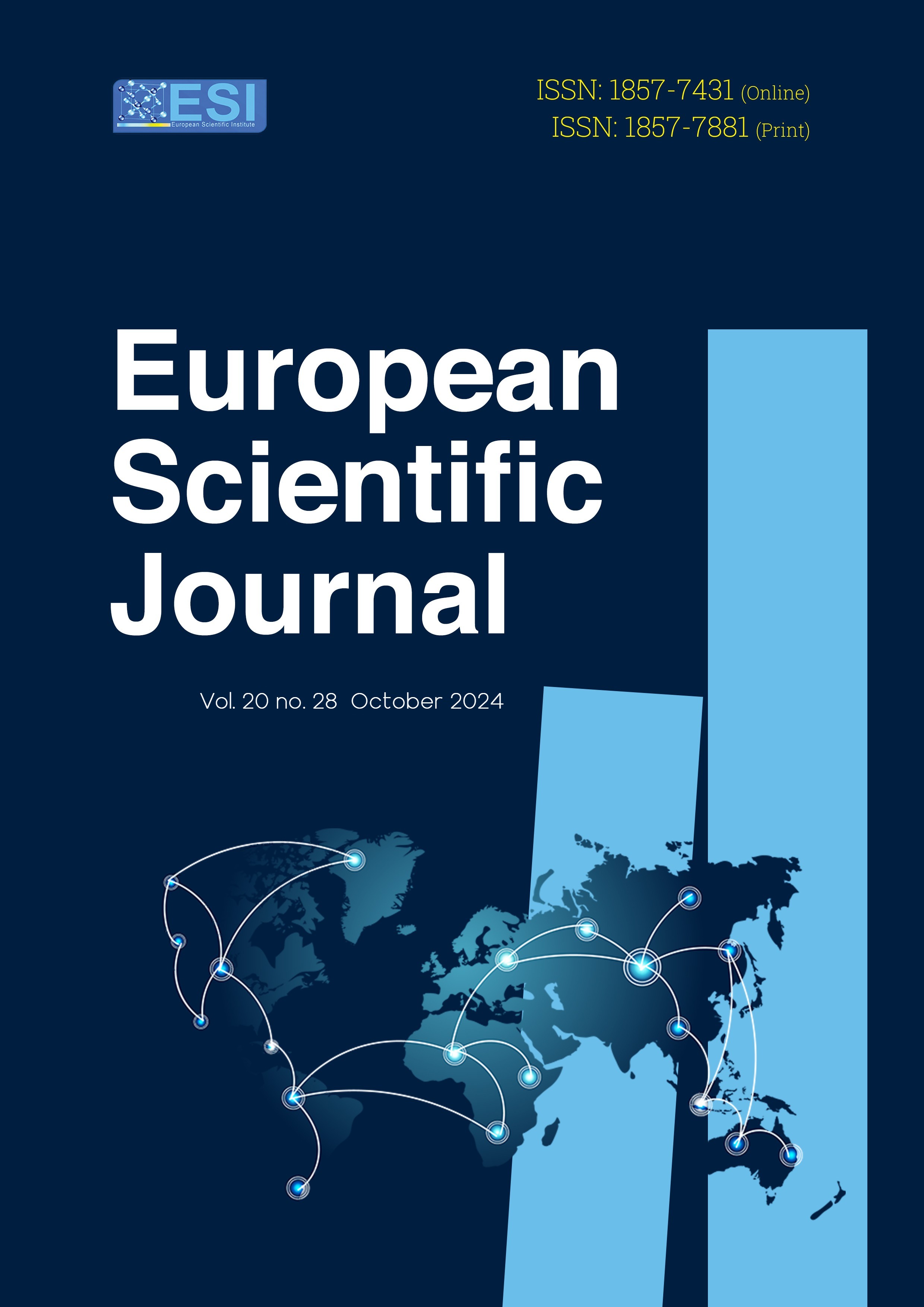The Impact of ESG Ratings on Investment Decisions in the Energy Sector During Uncertain Times
Abstract
With increasing global awareness of sustainability, the financial sector must inevitably adapt. Our research investigates the role of Environmental, Social, and Governance (ESG) ratings in investment decision-making, particularly in the energy sector, by examining their impact on portfolio performance. The study aims to assess the impact of ESG integration on portfolio risk and returns. Using data from the SP500 index, econometric models and Monte Carlo simulations are employed to evaluate how ESG considerations influence portfolio optimization and risk management. The study reveals that integrating ESG criteria into investment strategies, especially during market volatility, may not always directly affect returns, they provide significant benefits in terms of risk mitigation and ethical investment alignment.
Downloads
PlumX Statistics
References
2. Broadstock, D. C., Chan, K., Cheng, L. T. W., & Wang, X. (2021). The role of ESG performance during times of financial crisis: Evidence from COVID-19 in China. Finance Research Letters, 38, 101716. https://doi.org/10.1016/j.frl.2020.101716
3. Caflisch, R. E. (1998). Monte Carlo and quasi-Monte Carlo methods. Acta Numerica, 7, 1-49. https://doi.org/10.1017/S0962492900002804
4. Cao, J., Titman, S., Zhan, X., & Zhang, W. (2020). ESG preference, institutional trading, and stock return patterns (No. w28156). National Bureau of Economic Research.
5. Chatterji, A., & Levine, D. (2006). Breaking down the wall of codes: Evaluating non-financial performance measurement. California Management Review, 48(2), 29-51.
6. Díaz, V., Ibrushi, D., & Zhao, J. (2021). Reconsidering systematic factors during the Covid-19 pandemic - The rising importance of ESG. Finance Research Letters, 38, 101870. https://doi.org/10.1016/j.frl.2020.101870
7. Fama, E. F., & MacBeth, J. D. (1973). Risk, Return, and Equilibrium: Empirical Tests. Journal of Political Economy, 81(3), 607-636. http://www.jstor.org/stable/1831028
8. ESG. (2021, 26 avril). SRI label. https://www.lelabelisr.fr/glossaire/esg/
9. Hardy, C. (2020-2021). Has the Covid-19 crisis changed the way investors look at ESG criteria in their investment strategy?
10. Harvard Business School Online. (2022, 15 septembre). 7 ESG investment strategies to consider. Business Insights Blog. https://online.hbs.edu/blog/post/esg-investment-strategies
11. Hawley, J. (2017). ESG ratings and rankings. TruValue Labs. https://www.truvaluelabs.com/wp-content/uploads/2017/12/ESG-Ratings-and-RankingsAll-Over-the-Map.pdf
12. Hoffmann, A. O., Post, T., & Pennings, J. M. (2013). Individual investor perceptions and behavior during the financial crisis. Journal of Banking & Finance, 37(1), 60-74.
13. Leite, P. E. C., & Cortez, M. C. (2015). Performance of European socially responsible funds during market crises: Evidence from France. International Review of Financial Analysis, 40, 132-141. https://doi.org/10.1016/j.irfa.2015.05.012
14. Mǎnescu, C. (2011). Stock returns in relation to environmental, social and governance performance: Mispricing or compensation for risk? Sustainable Development, 19(2), 95-118. https://doi.org/10.1002/sd.510
15. Nassar, L. (2020). ESG IN EQUITY COUNTRY SELECTION.
16. Pedersen, L. H., Fitzgibbons, S., & Pomorski, L. (2021). Responsible investing: The ESG-efficient frontier. Journal of Financial Economics, 142(2), 572-597. https://doi.org/10.1016/j.jfineco.2020.11.001
17. Riedl, A., & Smeets, P. (2017). Why do investors hold socially responsible mutual funds? The Journal of Finance (New York), 72(6), 2505-2550. https://doi.org/10.1111/jofi.12547
18. Schueth, S. (2003). Socially Responsible Investing in the United States. Journal of Business Ethics, 43(3), 189-194. https://doi.org/10.1023/A:1022981828869
19. Skadden, Arps, Slate, Meagher & Flom LLP. (2023, 1er février). ESG in 2022 and Predictions for 2023. https://www.skadden.com/insights/publications/2023/02/esg-in-2022-and-predictions-for-2023
20. Wang, A. Y., & Young, M. (2020). Terrorist attacks and investor risk preference: Evidence from mutual fund flows. Journal of Financial Economics, 137(2), 491-514.
Copyright (c) 2024 Mamdouh Tlaty, El Idrissi El Mahdi, Nakhcha Marouane, Younes Ouahi

This work is licensed under a Creative Commons Attribution 4.0 International License.








